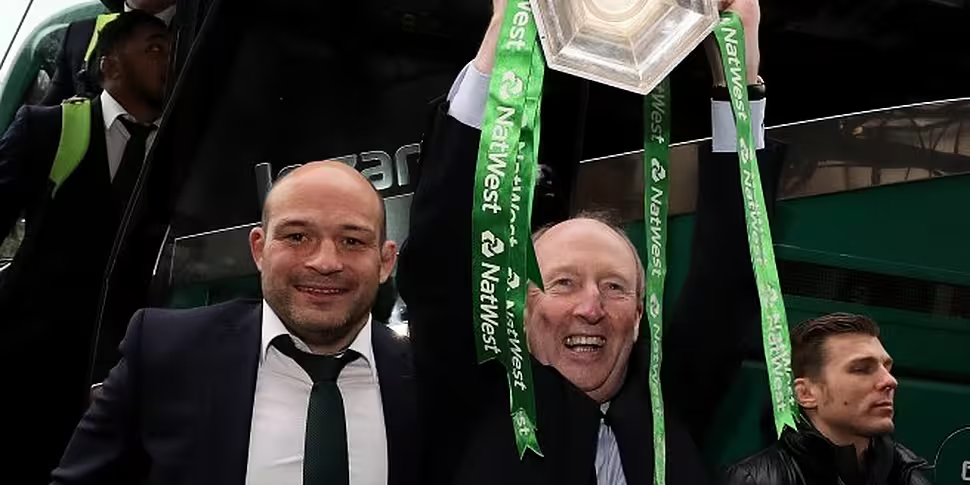University College Cork lecturer - and former Cork hurler - John Considine joined Ger and Eoin this morning to discuss the repercussions from the Sports Capital Programme controversy. After revelations that Minister for Transport, Tourism and Sport signed off on a €150,000 grant for Wesley College's hockey pitch, OTB:AM caught up with him to discuss the implications of the ongoing issue for Irish politics, sport and society.
John's work into Irish public finance led him to research the Sports Capital Programme grants as far back as 1997, and he found that there was a direct link between the incumbent Minister of Sport's constituent county, and the amount of money that the county was awarded in grant money.
"We found that when Jim McDaid was in the Department of Sport, Donegal got the highest [Sports Capital grants] per capita. When he left, Donegal slide down the rankings, and he is replaced by John O'Donoghue [...] You could argue at that stage that it's just Fianna Fáil but then he gets replaced by Michael Ring and Mayo do quite well. So we found that there was a geographical distribution - the money followed the Minister, basically."
"We have a Minister who is independent and the grants are still coming under criticism. But I think there's something different about the criticism this time - it's more based on income rather than geographic spread, although I know that the school is closely linked to the Minister.
"I think the bigger issue [is that the] clubs were let down by the overall governance of sport - the politicians, their own sporting organisations and their local government in the area."
John also feels that large tracts of the issue could have been avoided by reallocation of money from the Budget directly for the purposes of funding sport in disadvantaged areas. That way, the element of competition with private entities - often containing individuals more versed in attracting and procuring funding through applications - is diminished, and the aspect of the Programme expressly dedicated to "[prioritising] the needs of disadvantaged areas in the provision of sports facilities" is satisfied.
"It's important to realise that these sports capital grants tend to go to areas - and sports - that are well-organised, that have a social network, that can literally fill out the forms. Because in lots of ways they are a superb system for doing it, because what the government get is the locals sussing out whether they can do this sort of stuff [...] But if we want to fund sport in disadvantaged areas, we need ways of doing so in a more efficient way, not making it a competition, making it out in the open and saying 'This is what we want to fund in those areas."
John also illuminated the troubling way that past Ministers of Sport view issues, as a way of proving their local credentials, as opposed to their wider, immediate ministerial remit:
"I don't know if you can do much about it. Shane Ross might be delighted that this was published today, saying that he looked after his area. I was on a programme with [former Minister for Sport] Jim McDaid where he said exactly the same - he actually cited my research saying 'John Considine's research shows that I've served the people of Donegal quite well.'"
"We buy into this, because when we find our local TD has become Minister for Sport, we pile in going 'Can we get a sports grant from you?'"
You can watch the show live at the top of the page from 7.45, while you can also watch on Twitter, Facebook and YouTube.









